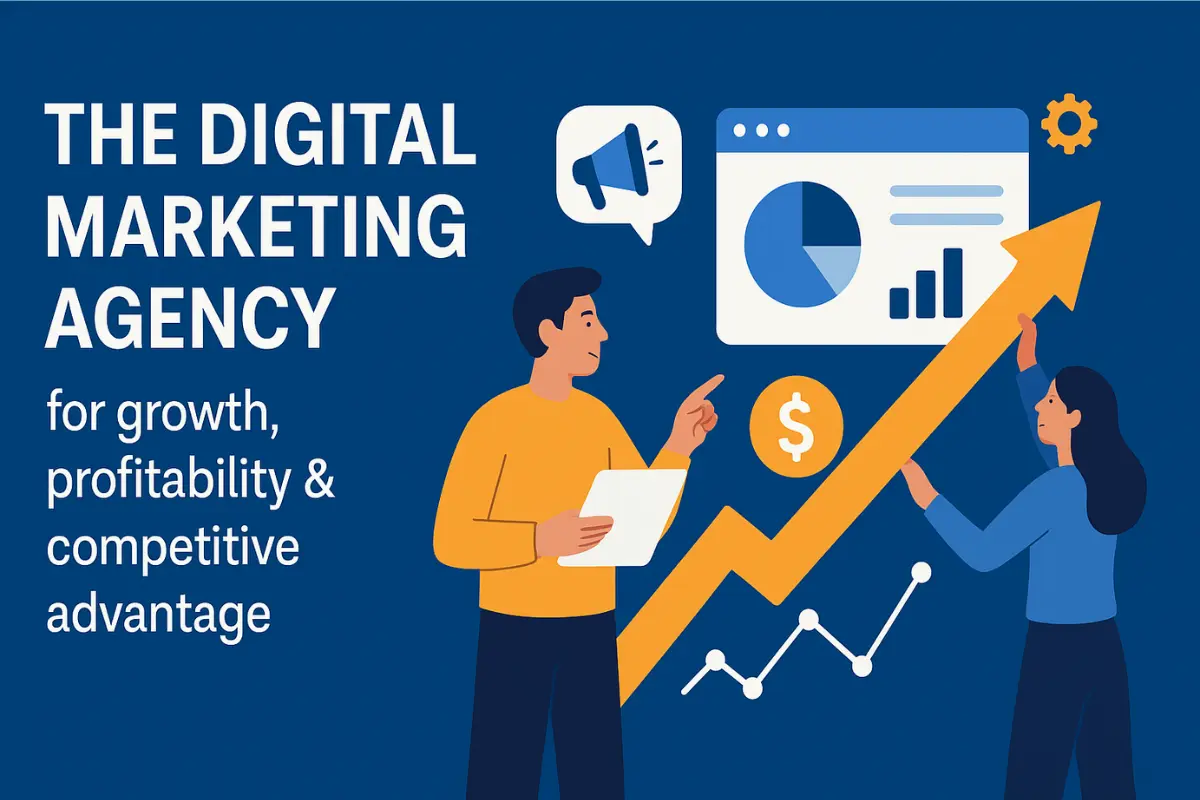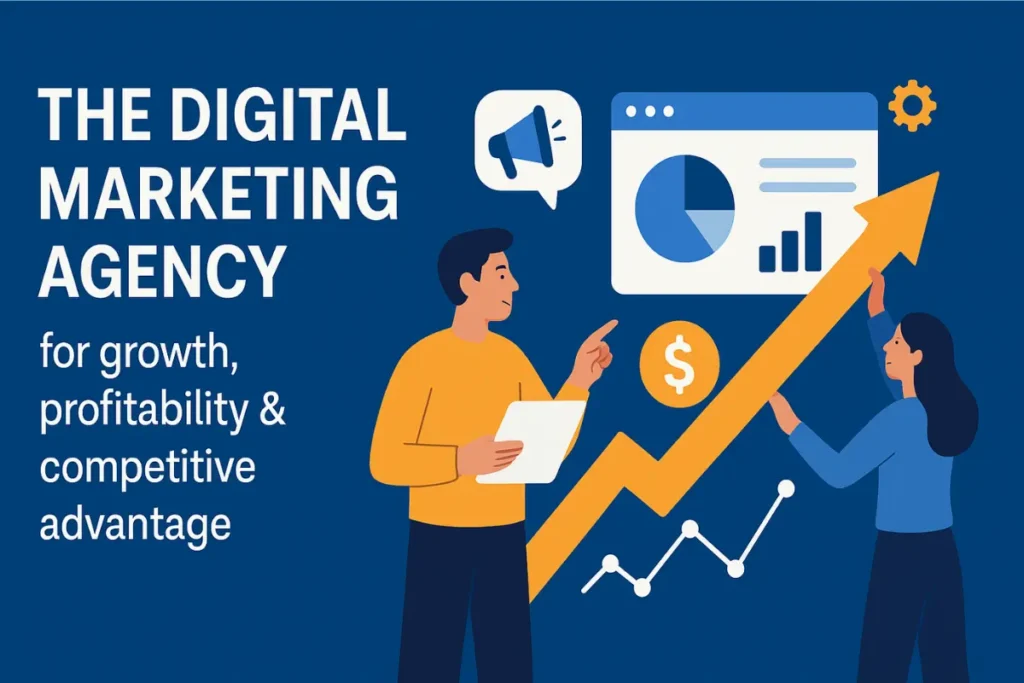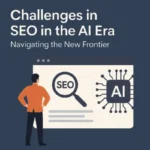In the sprawling, hyper-connected digital landscape of the 21st century, a business without a robust online presence is like a ship without a rudder—drifting aimlessly in a vast ocean of competition. Consumers now live online. Their journey from awareness to consideration to purchase decision is a complex digital dance across search engines, social media feeds, review sites, and email inboxes. To not only navigate this journey but to influence it, orchestrate it, and ultimately profit from it, requires expertise, technology, and a strategic mindset that many businesses simply cannot cultivate in-house.
This is where the modern digital marketing agency ceases to be a mere service provider and transforms into an indispensable strategic partner. It is the key to unlocking a powerful trifecta of business success: **sustained growth, enhanced profitability, and an unassailable competitive advantage.**
This article will deconstruct exactly how a forward-thinking digital marketing agency delivers on these three critical promises, moving far beyond the outdated notion of simply “managing social media” or “running a few ads.”
The Engine of Growth: Data-Driven Strategies for Scalable Expansion
Growth is the lifeblood of any business. But not all growth is created equal. The goal is *sustainable, scalable* growth. A digital marketing agency achieves this by acting as a centralized command center for your market expansion efforts, leveraging a multi-channel approach fueled by relentless data analysis.
1. Mastering the Art of Visibility: Search Engine Optimization (SEO)
You can have the best product or service in the world, but if no one can find it, it doesn’t matter. SEO is the foundational bedrock of digital growth. An agency doesn’t just “do SEO”; it engineers online visibility.
Technical SEO:
They audit your website’s infrastructure—fixing slow load speeds, ensuring mobile-friendliness (a critical Google ranking factor), and creating a site architecture that search engine crawlers can easily navigate. This is the unsexy but vital groundwork.
Content & Keyword Strategy:
Agencies conduct deep market research to identify the exact phrases and questions your potential customers are typing into Google. They then craft a content strategy—blogs, pillar pages, guides—that answers these queries, positioning your brand as a trusted authority and capturing high-intent traffic.
Local SEO:
For businesses with a physical presence, agencies optimize your Google Business Profile, manage reviews, and ensure you appear in “near me” searches, driving foot traffic and local leads.
2. Capturing Intent: Strategic Paid Advertising (PPC)
While SEO is a long-term play, paid advertising offers immediate, highly targeted growth. Agencies excel here by maximizing return on ad spend (ROAS).
Precision Targeting:
They use sophisticated tools to target users based on demographics, interests, online behavior, and even their stage in the buying cycle. Your ads are shown only to those most likely to convert, reducing waste.
Cross-Channel Campaigns:
A modern agency doesn’t just run Google Ads. They build integrated campaigns across Google, Microsoft Advertising, meta-platforms (Facebook, Instagram), LinkedIn, TikTok, and even programmatic display networks, ensuring your message reaches your audience wherever they are.
Continuous Optimization:
Campaigns are not “set and forget.” Agencies A/B test ad copy, images, and landing pages daily. They use conversion tracking to see which ads lead to actual sales or leads, and they ruthlessly reallocate budget to the top performers.
3. Building Communities and Brand Love: Social Media Marketing
Social media is not just a megaphone for promotions; it’s a relationship-building tool. Agencies use social platforms to humanize your brand, foster community, and create a loyal following that translates into long-term growth.
Strategic Content Calendar:
They develop a consistent stream of valuable content—educational, entertaining, inspiring—that engages your audience without constant hard-selling.
Community Management:
They actively respond to comments, messages, and reviews, turning customer service into a public showcase of your brand’s values and building immense trust.
Data-Led Insights:
They analyze which content drives the most engagement and leads, refining the strategy to double down on what truly works for your unique audience.
The Path to Profitability: Maximizing ROI and Operational Efficiency
Growth without profitability is a hollow victory. Many businesses pour money into marketing with no clear understanding of what’s working. A digital marketing agency introduces a culture of accountability and efficiency that directly boosts your bottom line.
1. The Culture of Measurement and Attribution
The single greatest value an agency provides is moving marketing from a “cost center” to a “profit center.” They achieve this through rigorous analytics.
Tracking the Entire Customer Journey:
Agencies implement advanced tracking (e.g., Google Tag Manager, UTM parameters) to see not just the last click before a conversion, but the entire path—perhaps a user found you through a blog (SEO), then followed you on LinkedIn (Social), and finally converted after clicking a retargeting ad (PPC). This allows for accurate budget allocation.
Key Performance Indicators (KPIs):
They focus on profit-centric metrics, not just vanity numbers. Instead of just “website traffic,” they track **Cost per Acquisition (CPA), Customer Lifetime Value (LTV), and Return on Ad Spend (ROAS).** This aligns their success directly with your profitability.
2. Conversion Rate Optimization (CRO): Making What You Have Work Harder
What is more profitable: spending $10,000 to get 1,000 new visitors, or spending $0 to get 500 *more* conversions from your existing 1,000 visitors? CRO is the latter. Agencies specialize in systematically improving your website’s ability to turn visitors into customers.
A/B Testing:
They test different versions of headlines, call-to-action buttons, page layouts, and forms to discover what combination leads to the highest conversion rate. A small 5% increase in conversion rate can lead to a 50%+ increase in profitability from the same traffic.
User Experience (UX) Analysis:
Using heatmaps and session recordings, they identify where users get confused or frustrated on your site and rectify these friction points, creating a seamless path to purchase.
3. The Efficiency of Outsourcing
Hiring, training, and retaining a full in-house team of specialists (SEO, PPC, Content, Social, Design, Web Development) is prohibitively expensive for most small and medium-sized businesses. An agency provides immediate access to a full suite of experts and cutting-edge tools (e.g., Ahrefs, SEMrush, HubSpot) for a predictable monthly investment. This operational efficiency translates directly into higher profitability, as you avoid massive overhead costs and only pay for the results.
Forging a Competitive Advantage: The Strategy That Sets You Apart
In a crowded market, features and price are often easily replicated. A true competitive advantage is harder to copy. It’s built on brand perception, market intelligence, and agility—all areas where a skilled agency provides immense value.
1. Becoming the Authority: Content as a Moat
A deep, valuable, and ongoing content strategy creates a “moat” around your business. By consistently producing the best and most helpful information in your industry, you become the go-to resource. A competitor can copy a product, but they cannot easily copy years of accumulated trust, a vast library of ranking content, and a brand reputation as the thought leader. An agency develops and executes this long-term authority-building strategy.
2. Leveraging Market Intelligence
Agencies are on the front lines of digital trends. They have access to aggregated data across multiple clients and industries. This allows them to provide you with invaluable insights:
Competitor Analysis:
They continuously monitor your competitors’ digital strategies—their keywords, their ad copies, their social engagement—allowing you to identify gaps in their approach and opportunities for you to differentiate.
Trend Forecasting:
They spot emerging platforms, changing consumer behaviors, and new algorithm updates early, allowing you to adapt and pivot your strategy before your competitors even know what’s happening. This agility is a massive advantage.
3. A Culture of Innovation and Testing
The digital world changes at breakneck speed. What worked six months ago may be obsolete today. Agencies are built for this environment. Their entire model is based on testing, learning, and iterating. They bring a culture of innovation to your marketing, constantly experimenting with new formats (e.g., short-form video, interactive content), new platforms, and new technologies (e.g., AI-powered copywriting tools, advanced analytics) to keep you ahead of the curve.
Also Read
Choosing the Right Partner: It’s About More Than Services
Not all agencies are created equal. When selecting a partner, look beyond a list of services. Seek a strategic ally that demonstrates:
Transparency:
They should have clear reporting and be open about both successes and failures.
Communication:
They speak your language (business outcomes, not just jargon) and are proactive.
Cultural Fit:
Their team should understand and be excited by your vision and values.
Case Studies & Data:
They should be able to prove their impact with data-driven stories from businesses like yours.
Conclusion: An Investment in Your Future
Viewing a digital marketing agency as a simple vendor is a critical mistake. In today’s economy, it is a strategic investment in the three most important pillars of your business. It is the engine for growth, the architect of profitability, and the forge of your competitive advantage. By partnering with the right agency, you gain more than just a service; you gain a dedicated team of experts, a powerhouse of technology, and a data-driven mindset focused on one thing: propelling your business forward in a digital-first world. The question is no longer *if* you can afford to hire an agency, but whether you can afford not to.





